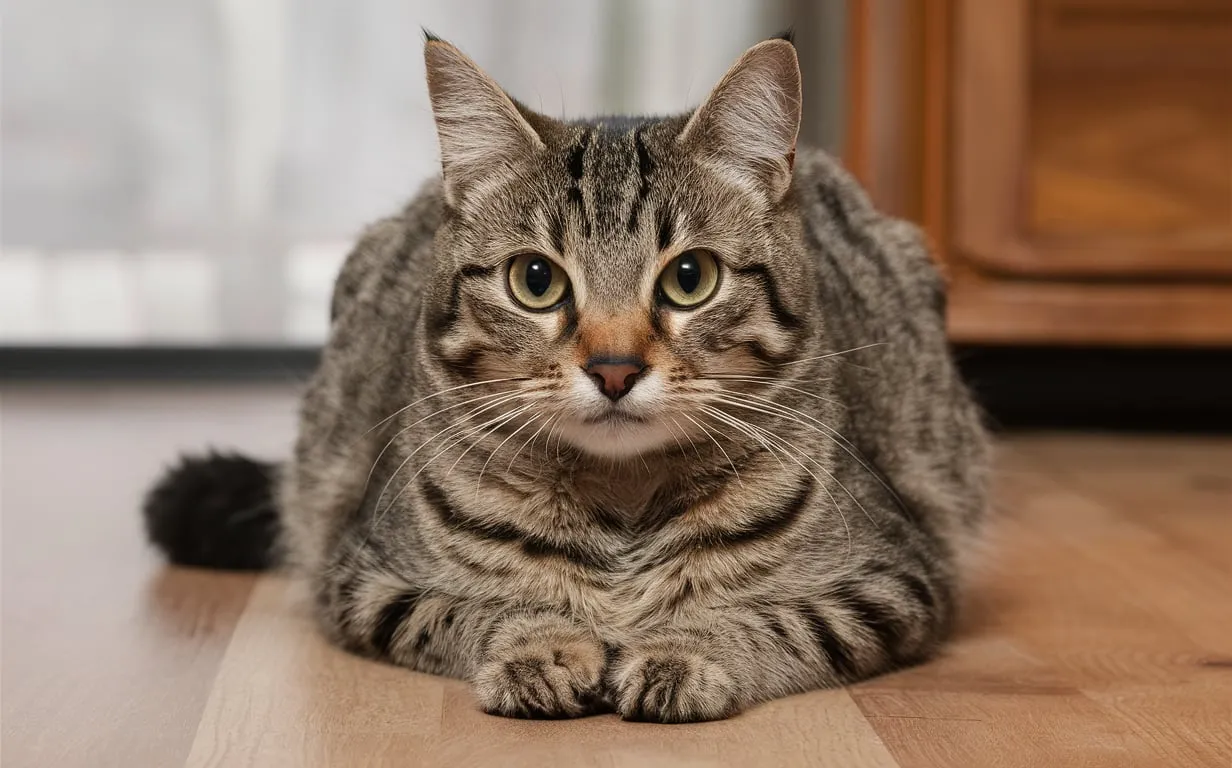Seeing your cat pooping jelly-like substance with blood can be alarming and concerning. While occasional changes in stool consistency can be normal, this symptom often points to an underlying health issue that requires veterinary attention. This article of In For Cats will delve into the potential causes of this unusual stool, help you understand when it’s a cause for concern, and guide you on how to determine if your feline friend needs a trip to the vet.
Cat pooping jelly-like substance with blood is a serious sign that should not be ignored. It can be a symptom of various digestive issues, ranging from mild to severe.

Potential Causes Of Cat Pooping Jelly Like Substance With Blood
Gastrointestinal Infections
- Bacterial infections: Bacteria like Salmonella, E. coli, and Campylobacter can cause inflammation in the intestines, leading to bloody diarrhea.
- Viral infections: Feline panleukopenia virus (FPV) and feline leukemia virus (FeLV) can cause severe gastrointestinal symptoms, including bloody diarrhea.
- Parasitic infections: Parasites like roundworms, hookworms, and coccidia can irritate the intestines, resulting in bloody diarrhea.
Inflammatory Bowel Disease (IBD)
Chronic inflammation: IBD is a chronic condition that causes inflammation of the digestive tract, leading to various symptoms, including bloody diarrhea.
Food Allergies or Sensitivities
Immune response: Certain food ingredients can trigger allergic reactions in cats, causing inflammation and digestive upset, potentially leading to bloody diarrhea.
Dietary Changes
Sudden shifts: Abrupt changes in diet can upset a cat’s digestive system, resulting in loose stools or bloody diarrhea.
Foreign Body Ingestion
Obstruction: If a cat ingests a foreign object that gets lodged in the digestive tract, it can cause inflammation, obstruction, and potentially bloody diarrhea.
Anal Gland Issues
Impacted or infected glands: Impacted or infected anal glands can cause discomfort and bloody diarrhea.
Tumors
Cancerous or non-cancerous growths: Tumors in the digestive tract can cause various symptoms, including bloody diarrhea.
When to Seek Veterinary Care
Persistent bloody diarrhea: If your cat continues to poop jelly-like substance with blood for more than a day or two, it’s crucial to seek veterinary care.
Other symptoms: If your cat is experiencing other symptoms alongside bloody diarrhea, such as lethargy, vomiting, loss of appetite, fever, or abdominal pain, it’s essential to seek veterinary care immediately.
Dehydration: Signs of dehydration, such as sunken eyes, dry gums, and decreased urination, are serious and require prompt veterinary attention.
Diagnosing the Cause of Bloody Diarrhea in Cats
Physical exam: Your veterinarian will perform a thorough physical exam to assess your cat’s overall health and look for any signs of dehydration or abdominal pain.
Fecal examination: A fecal sample will be analyzed to check for parasites, bacteria, or other abnormalities.
Blood tests: Blood tests can help rule out underlying medical conditions, such as infections or inflammation.
Radiographs (X-rays): X-rays can help identify any foreign objects or abnormalities in the digestive tract.
Endoscopy: Endoscopy allows the veterinarian to visualize the lining of the digestive tract and obtain biopsies for further analysis.
Treatment Options for Bloody Diarrhea in Cats
Medications:
- Antibiotics: Antibiotics are used to treat bacterial infections.
- Antiparasitics: Antiparasitic medications are used to treat parasitic infections.
- Anti-inflammatories: Anti-inflammatory medications can help reduce inflammation in the digestive tract.
- Diarrhea medications: Diarrhea medications can help control diarrhea and reduce discomfort.
Dietary Management
- Bland diet: A bland diet, such as boiled chicken and rice, can help soothe the digestive tract.
- Prescription diet: Your veterinarian may recommend a prescription diet specifically formulated for digestive issues.
Surgery
- Foreign object removal: If a foreign object is found in the digestive tract, it may need to be surgically removed.
- Tumor removal: Tumors may need to be surgically removed to relieve symptoms and improve prognosis.
Frequently Asked Questions (FAQs)
Q: What does it mean if my cat is pooping jelly-like substance?
A: Jelly-like stool in cats can indicate various digestive issues, including infections, inflammation, or dietary problems.
Q: Is bloody diarrhea in cats always serious?
A: Bloody diarrhea in cats is a serious symptom that requires veterinary attention. It can be a sign of a mild or severe health issue.
Q: How can I prevent my cat from getting bloody diarrhea?
A: You can help prevent bloody diarrhea in cats by keeping them up to date on their vaccinations, providing a clean and healthy environment, avoiding contact with sick animals, and feeding a balanced diet.
Conclusion:
Cat pooping jelly-like substance with blood is a concerning symptom that should not be ignored. It’s crucial to seek veterinary care promptly to diagnose the underlying cause and receive appropriate treatment. By understanding the potential causes, recognizing the signs of concern, and seeking professional help, you can help your feline friend recover and maintain their digestive health.

Related Post
Is Laryngitis In Cats Deadly? Understanding Feline Vocal Cord Inflammation
What Is Shaken Cat Syndrome?
Cat Nose Bleed And Sneezing: A Comprehensive Guide